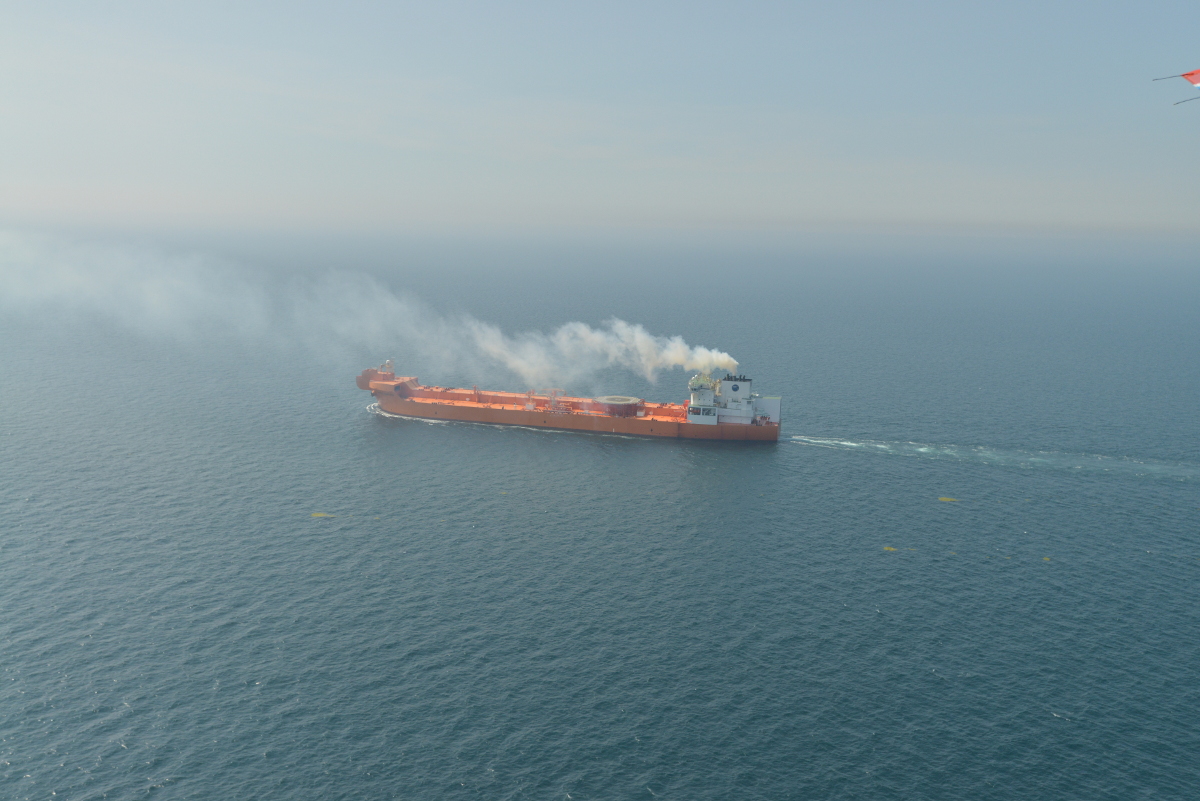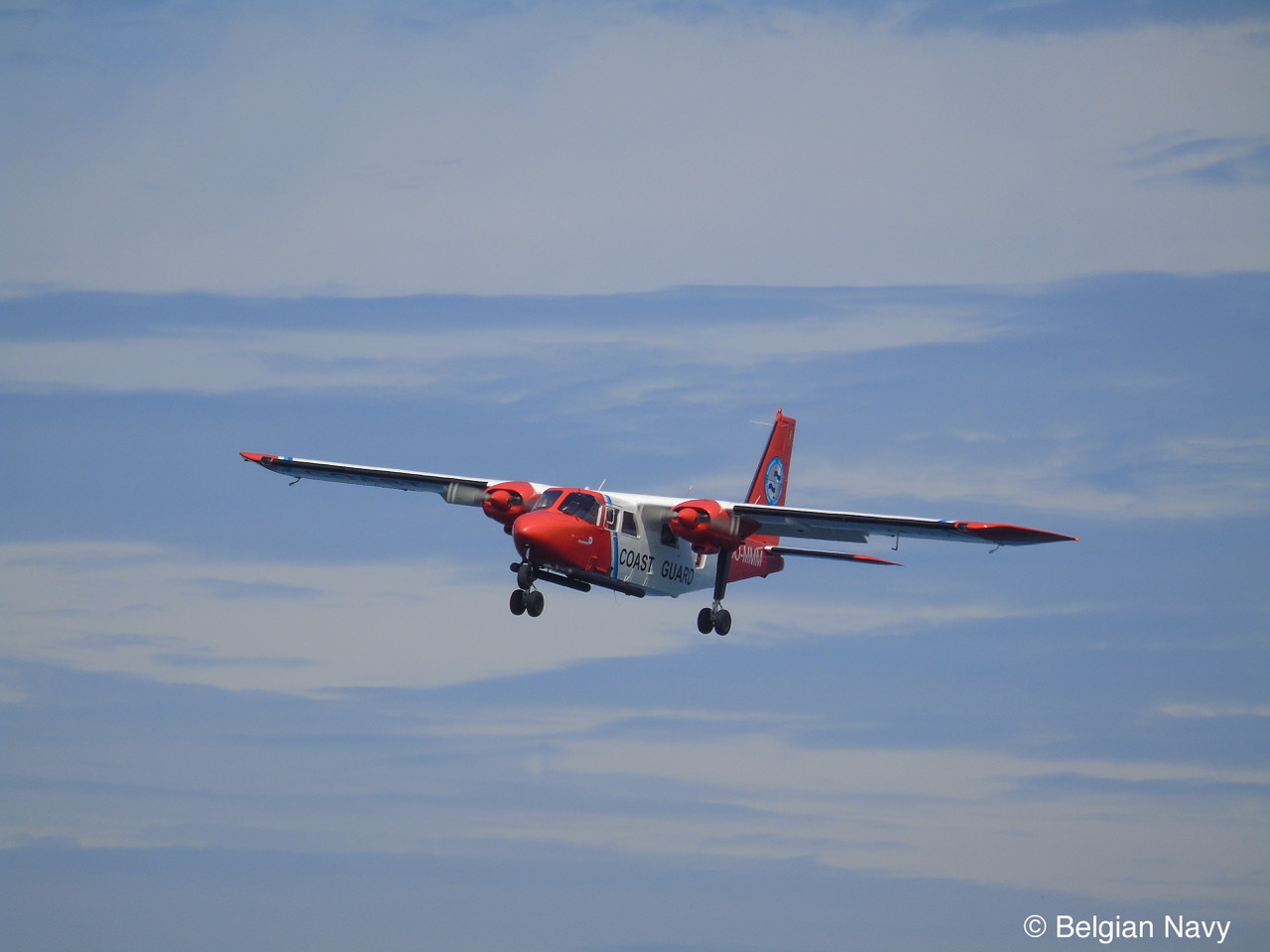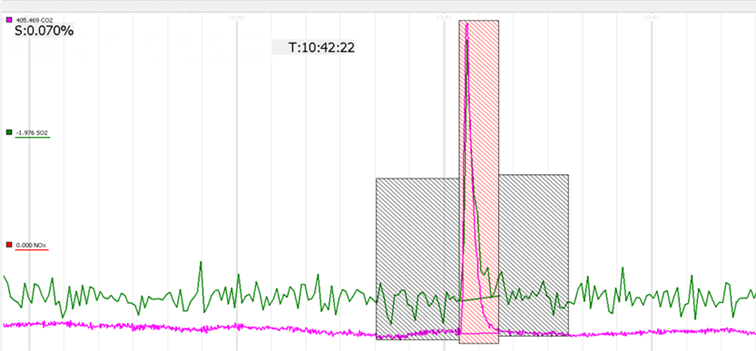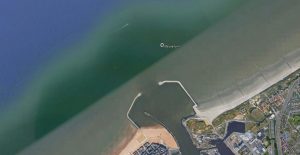
In the Activity Report 2016 of our North Sea aerial survey programme published earlier this year, MUMM already mentioned the recent purchase of a new instrument, a so-called sniffer sensor, that allows MUMM to monitor the sulphur emissions from ships at sea with the surveillance aircraft.

These new “sulphur monitoring flights” of MUMM were initiated in the framework of the European pilot project ‘CompMon’, with the aim to facilitate and contribute to the enforcement of the stringent sulphur emission regulations as determined in Annex VI of the MARPOL 73/78 Convention and the European Sulphur Directive. The limitation of sulphur emissions from ships at sea is in fact a European top priority, for various important public health related and environmental reasons (fine dust, acid rain, climate change).
In 2016 MUMM monitored the sulphur emission of ca. 1300 ships at sea. For 120 of these ships suspect sulphur values have been measured (= ca. 10%). Each suspicious observation was systematically reported to the maritime inspection service of the Belgian Directorate-General for Shipping, for a further follow-up in port – if needed in cooperation with other competent port authorities in the framework of the European ‘Port State Control’ network.

The results and experiences gained from these flights have now been presented and discussed at the annual meeting of OTSOPA, the technical working group of the Bonn Agreement, held in Norway at the end of May 2017. The Bonn Agreement is the mechanism by which the North Sea States, and the European Union, work together to prevent and combat maritime pollution in the North Sea. It is under this agreement that the aerial surveillance efforts above the North Sea have been coordinated since the early ‘90s, although the initial aim was mainly to detect and combat oil spills at sea.
Following MUMM’s presentation on the remarkable results of the sulphur monitoring flights above the North Sea, OTSOPA agreed on the importance of this new type of surveillance mission. OTSOPA furthermore decided to submit a request to the next Contracting Parties meeting of the Bonn Agreement later this year to approve the start-up of sub-regional sulphur emission monitoring operations above the entire North Sea, coordinated in the framework of this agreement.
Earlier in May 2017, MUMM also presented the same offshore sulphur monitoring results to the annual meeting of the North Sea Network of Investigators and Prosecutors (NSN), who have decided to give a high priority to the prosecution of sulphur emission offences.
With these international efforts our country currently plays a leading role on the matter. In the meantime, MUMM continues to execute regular sulphur monitoring flights at sea.
Belgium’s Secretary of State for the North Sea Philippe De Backer reacts very positively: “With these controls Belgium really performs a pioneer role. It helps us keeping our North Sea clean. Also internationally these efforts are being noticed. It is therefore good that these controls will be extended over the entire North Sea region.”




